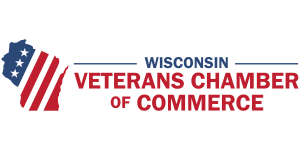
Unlocking the Potential of Military Veterans

Unlocking the Potential of Military Veterans
Veterans bring a wealth of diverse experiences, unparalleled discipline, and unique skill sets that are often underutilized in the civilian workforce. Today's session will illuminate the journey to harnessing this potential.
We will delve into:
- The myriad of strengths veterans offer to organizations.
- Overcoming barriers in recruitment and integration.
- Strategies for sustained engagement and growth.
Join us as we unravel the blueprint for tapping into this invaluable talent pool.
The Distinctive Edge of Military Veterans
- Adaptability: Accustomed to rapidly changing environments and unexpected challenges.
- Leadership: Trained to lead teams under high-pressure situations, fostering unity and a shared sense of purpose.
- Problem Solving: Equipped with analytical skills to assess, adapt, and overcome obstacles efficiently.
- Discipline & Work Ethic: Commitment to task completion, punctuality, and adherence to high standards.
- Teamwork: Understand the essence of collaboration, trust, and mutual respect to achieve objectives.
Recognizing these attributes is the first step to leveraging the immense potential that veterans offer.
Bridging the Gap: Understanding the Hiring Challenge
- Myth Dispelling: Debunking misconceptions about veterans, such as they are only suitable for certain types of roles or that all have seen combat.
- Cultural Divide: Navigating the nuances between military and civilian work cultures and ensuring a smooth transition.
- Skill Translation: Addressing the challenge of translating military jargon and ranks into understandable and applicable civilian job skills.
- Integration Concerns: Overcoming potential hurdles related to PTSD or adapting to on-hierarchical work settings.
Your mission is not just to hire veterans but to provide an environment where their skills and experiences are understood, valued, and fully utilized.
Seizing the Talent: Best Practices for Veteran Recruitment
- Inclusive Job Descriptions: Craft roles that highlight the value of military skills and experiences, avoiding overly technical jargon.
- Collaborate with Veteran Organizations: Partner with institutions like the American Legion or VFW to access a wider pool of veteran talent.
- Military Skills Translator Tools: Utilize platforms that help in converting military roles and codes into civilian job equivalents, simplifying the application process for veterans.
- Veteran-Focused Job Fairs: Dedicate recruitment events tailored to veterans, ensuring they're in an environment that recognizes their unique skill set.
The goal is to create a recruitment ecosystem where veterans feel understood, valued, and empowered to step into the civilian workforce.
Crafting Resonant Roles: The Power of Tailored Job Descriptions
- Language Matters: Avoid corporate jargon. Use clear, concise language that resonates with military experience and service.
- Skill Highlight: Focus on attributes like leadership, teamwork, discipline, and adaptability, which are often second nature to veterans.
- Role Flexibility: Recognize that a veteran might not fit a conventional role perfectly but can bring a unique blend of skills that can be even more beneficial.
- Clarity on Growth: Veterans are accustomed to rank and progression. Outline potential growth paths and opportunities in the organization.
By speaking their language and valuing their experience, we can make the transition from military to civilian roles seamless and attractive for veterans.
Building Connections: Collaborating with Veterans Associations
- Rich Talent Pool: Associations offer access to a diverse and skilled group of veterans ready for civilian roles.
- Insights & Training: Partnering can provide invaluable insights into the needs and preferences of veterans, enabling better recruitment strategies.
- Joint Events: Host or sponsor veteran-centric events like workshops, job fairs, or webinars to directly engage and attract potential hires.
- Feedback Loop: Maintain an ongoing relationship to receive feedback on hiring practices, ensuring continuous improvement and alignment with veteran needs.
Leveraging the strength and resources of veteran associations isn’t just a recruitment strategy; it’s a commitment to understanding and valuing our heroes in uniform.
Bridging the Vernacular: The Military Skills Translator
- Decoding Military Skills: Use translator tools to convert military codes, ranks, and jargon into civilian skill sets and job roles.
- Highlighting Transferable Skills: Emphasize the adaptability, leadership, and problem-solving skills inherent in many military roles.
- Facilitate Smoother Applications: By understanding military terminology, recruiters can better match veterans to appropriate job positions, streamlining the hiring process.
- Educate HR & Managers: Provide training sessions to help HR personnel and hiring managers understand the value and potential of translated military skills.
The key is not just translation, but transformation – taking the rich experiences of military service and showcasing them as invaluable assets in the civilian workspace.
Nurturing Growth: Best Practices for Veteran Development
- Customized Onboarding: Create programs tailored for veterans, helping them assimilate into the civilian work culture smoothly.
- Mentorship Initiatives: Pair veterans with mentors, preferably those with military experience, to guide their professional journey in the organization.
- Skill Enhancement: Offer continuous training and workshops to further hone the skills veterans bring, aligning them with company needs.
- Recognizing Military Training: Validate and credit the training veterans have undergone, seeing it as an asset rather than an anomaly.
Investing in the development of our veterans is not just good practice; it’s a testament to recognizing
Keeping the Best: Best Practices for Veteran Retention
- Veteran Resource Groups (VRGs): Establish or support internal groups where veterans can connect, share, and support each other.
- Regular Check-ins: Ensure consistent communication with veteran employees, addressing any challenges or concerns they might have.
- Flexible Work Arrangements: Recognize and accommodate the unique needs some veterans may have, be it related to health, family, or other obligations.
- Recognition & Celebration: Acknowledge the service and milestones of veteran employees, reinforcing their value to the organization. Retention goes beyond just keeping employees; it’s about making them feel valued, understood, and integral to the company’s success.
Building Stronger Bonds: Enhancing Veteran Engagement Within the Organization
- Open Dialogue: Foster an environment where veterans feel comfortable sharing their experiences and insights, bridging the military-civilian divide.
- Involve in Decision Making: Encourage veteran employees to take part in key decisions, valuing their unique perspectives.
- Community Initiatives: Engage in community services or events focused on veterans, reinforcing the company's commitment to their well-being and success.
- Feedback Channels: Implement systems where veterans can voice their concerns, suggestions, or feedback, ensuring their voice is always heard.
Engagement is a two-way street. By actively involving and valuing our veterans, we not only boost morale but also drive innovation and growth.
Navigating the Roadblocks: Overcoming Challenges in Veteran Integration
- Combat Stereotypes: Actively work against the myths and misconceptions surrounding veterans, promoting an accurate understanding.
- Cultural Sensitivity Training: Organize workshops that educate the workforce about military culture, bridging potential divides.
- Health & Wellness Support: Recognize and address potential health challenges, providing resources and support for issues like PTSD.
- Career Progression Clarity: Clearly outline the pathways for growth within the company, minimizing concerns veterans might have about their future.
To truly harness the potential of our veteran workforce, we must first understand, address, and overcome the unique challenges they face.
Embracing the Journey: Moving Forward with Our Veterans
- Value Beyond Skills: Recognize that veterans bring not just skills, but rich life experiences that can enhance our organizational culture.
- Continuous Improvement: Commit to ongoing learning and adaptation in our veteran hiring and integration strategies.
- Join the Movement: Encourage other businesses and organizations to recognize the potential of veteran talent and to implement best practices.
- Open Doors: Actively seek opportunities to collaborate, learn, and grow with our veteran community, making them central to our mission.
As we unlock the power of our military veterans, we don't just strengthen our teams; we honor the sacrifices and contributions they've made for all of us.
Subscribe to our Newsletter
Join the Wisconsin Veteran Chamber of Commerce

Author: Zach Zabel is from Northern Wisconsin and is the VP of Programs, Wisconsin Veterans Chamber of Commerce. He served in the US Navy from 2007-2013. Zach has been working and volunteering in the veteran space for over 10 years. He is currently earning Doctor of Business Administration at UW Whitewater with his dissertation regarding: Navigating Transitions: The Challenge Non-Veteran Hiring Professionals Face in Assessing Veteran Management Experience
